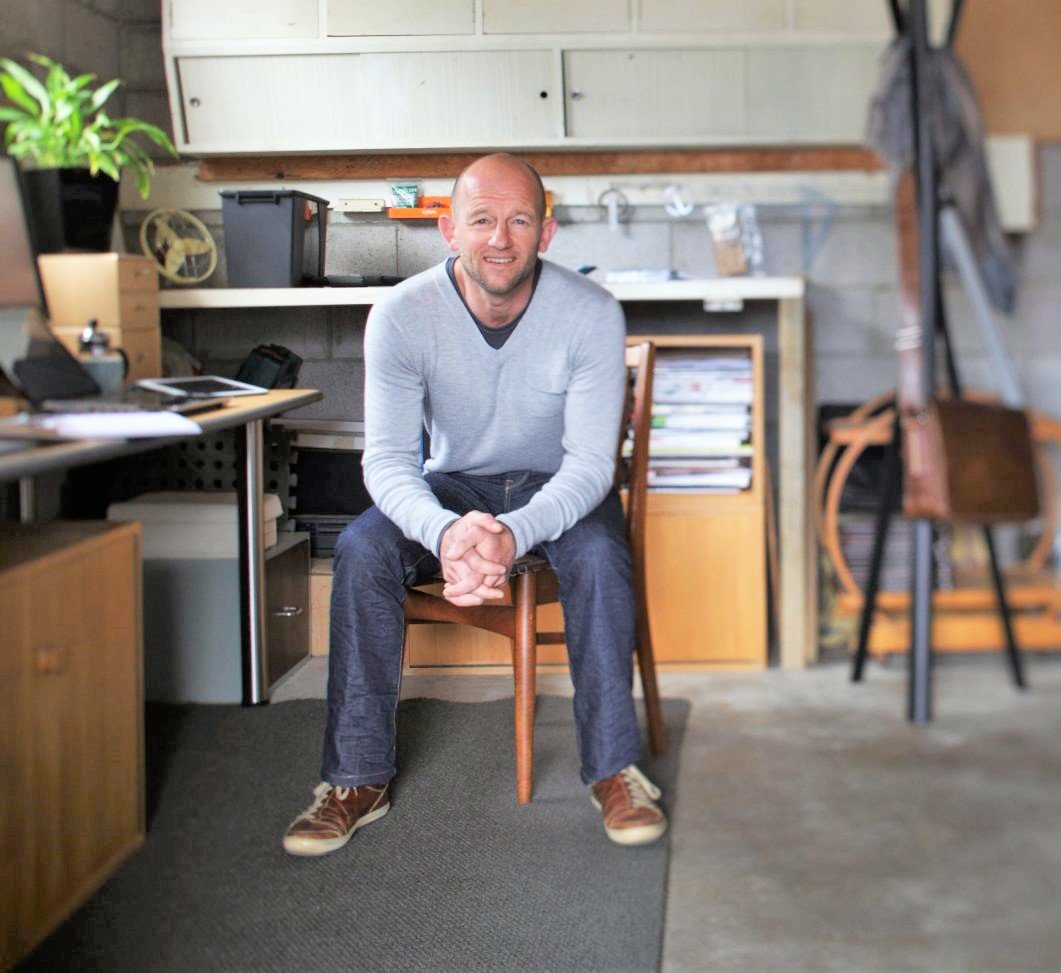Dan Gillingham on good design, the trouble with retail and the importance of being Earnest

With The Earnest Workshop going from strength to strength – and entering its fourth year of business – we decided to reconnect with Gillingham and find out just how a high-brow furniture maker reconciles his passion for quality the day-to-day compromises of the retail game.
Idealog: First things first. Didn’t you originally study technology? How does a techie end up in the furniture making game?
Gillingham: Yes. I studied the Bachelor of Technology at Massey University. I majored in product development and it was the design component of that that interested me the most. The final years of study were taught by lecturers with industrial design backgrounds. I spent my first year out of university as part of a product design consultancy made up of ex-students and staff from my faculty. It was an incredibly creative environment and a great intro to the “real world”. Since then, and up until creating The Earnest Workshop, I’ve worked within design teams for NZ furniture manufacturers.
Why is it called The Earnest Workshop?
Motivation for creating The Earnest workshop came from a lot of different places, but one that sticks in my mind is a comment made by a retailer to me a few years ago. She said that never had it been such a good time for a retailer selling furniture, because it was so cheap it enabled her customers to buy it on trend one year, and throw it away, and buy a new pieces the next. In my mind furniture shouldn’t be fashionable – she was talking about in the context of it being part of fast fashion. The Earnest Workshop returns to thinking where furniture is values and a belief that the enjoyment of any good design is ongoing, not disposable. We thought the word ‘Earnest’ talks about some of these values.

Is that’s what’s wrong with furniture design today?
Price is driving quality to a point where it ends up costing everyone a lot more; not just the cost to the unsuspecting buyer in replacing a furniture piece, but there’s too often environmental and ethical costs as well. If a price seems low, there’s usually a reason for it. The furniture industry has becoming a massive contributor to waste. Changing attitudes towards how people buy is key to the impact furniture will continue to have on the environment. For a long time New Zealand has designed and produced some great furniture. I think we’re finally seeing an awareness of issues associated with buying on price alone and a swing back to buying locally, and ethically. It’s pretty pleasing to now see market leaders in commercial architecture in New Zealand taking a stand on these issues.
Have you got a particular philosophy of design?
Good design has to encompass a lot of things, and many of these, such as environmental considerations and ethical sourcing of materials and labour, should be taken as givens. These are imperative and for us, so it means we’re constantly looking at how are products can be better – at the moment we’re assessing our wood glues and finishes. Design thinking for The Earnest Workshop centres around creating pieces that are original, functional and enduring – these are core to our values. Depending on the application for the furniture piece, the focus may shift. Commercial designs we’re working on at the moment focus heavily on activity-based working and so the functional aspect is key.
So there’s a tension between the day-to-day demands of being a retailer and the more lofty ideas of good design?
Yes and no. Good design is key to any business. I think most creatives enjoy time spent just creating for creativity’s sake, but ultimately design effort has to work towards an endpoint that is commercially successful. I think it’s also important to sometimes let the purely creative process take over. Peel (our free standing coat rack) was a long time in the conceptual, and then the production phases of development. It’s been a great success for us and had it not been for that randomness and freedom to experiment we wouldn’t have settled with the design, or the production process (steam bending) that we have.

Is there a piece you’ve created that’s your favourite?
I like Peel for the design challenge that it was developed around – to create a furniture piece from one piece of wood with little or no wastage…and then overcoming obstacles to get to where we are now. Flight (armchair) was the first Earnest Workshop piece designed specifically for the commercial market. It’s been rewarding to see it so well received.

Do people in your line of work ever create their ‘masterpiece’, by the common definition of that term?
I’m not sure if many would claim to have created their masterpiece. For me it’s about taking learnings from previous projects and enjoying the challenge of continually improving design.
You talk a lot about the longevity of your pieces and the importance of things lasting. What are you hoping to leave behind ultimately?
We want to be seen as a company that walks the talk and designs and sells great products. Ultimately if we come to be seen as that, we’ll be very happy.




